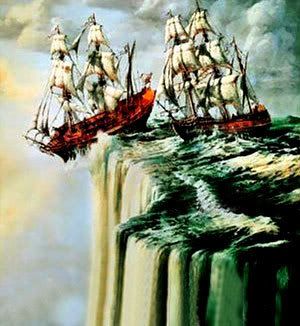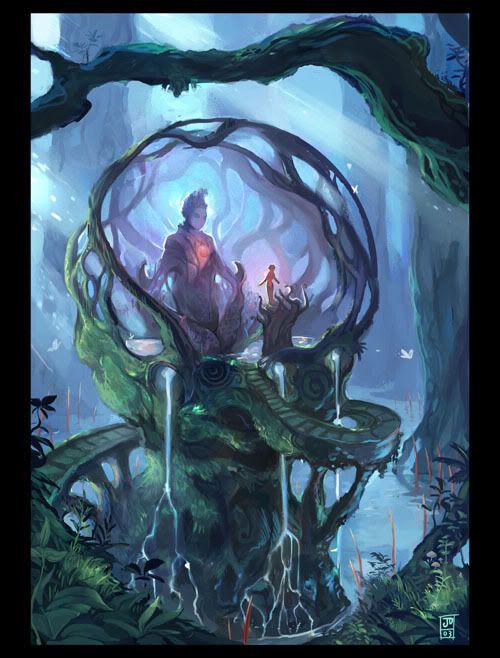
The point of the incarnation is that the Divine comes to us where we are, not that we have to search for it tirelessly. Sadly, for many, Jesus is a barrier to God. By this, I mean that they cannot understand how, if people all over the world and throughout history have never heard his name or about the events of his life, God can be seen as loving and as holding that dogma up as a requirement for having a relationship with the Spirit of God. It is, in fact, a Christian doctrine that we need God to come to us or our searches will be in vain. It is certainly true that humans are meant to search for the Divine and for deeper things, but if that search is in vain, God appears weak and not very universal at all.
I would imagine that if God is universal, which God is if God is God, then God must be larger than any religion. This means that if the God testified to by the Christian religion is real, then Christianity must testify to something bigger than itself, bigger than any dogma or doctrine. Having said that, doctrines are certainly great utility and, like the incarnation, act as vehicles to seeing the Divine more clearly. This is what theologians call “special revelation.”
These doctrines are incarnational because they embody deeper truths that connect us to the Spirit of God, just as the body of Jesus harbored the Spirit of God and translated it for us in comprehensible, human ways.
The Bible states that no one has ever seen God. This means that every image of God – every conception or articulation of God – is an icon, a sign. To solidify those images is to make the icon into an idol. Unfortunately, dogma and doctrine have been used to solidify images of God into idols.
John says that God is Love, God is Light, and God is Spirit. The prophets of old said God is Holy, meaning transcendent of human understandings and images. These are the most authoritative statements made about the nature of God in the Bible, and none of them represent anything less than transcendence and sublimity except perhaps love because it acts as a signifier for every action God performs among people. If God is Spirit, God cannot be solidified in dogma. If God is Love, God is understood through loving actions before the nature of God can be excavated (an impossibility).
What we observe of God are not framed representations but fluid movements. In regards to our experiences, God gives before God is. God becomes for us an experience of the Sublime. In Jesus we have observed the movement of the Divine among humans in the form of love, and we have called this good news. It is good news for the whole creation and for the future of creation.
The universal Spirit of the Divine saturates everything and gives life to all things. This God is universal and acts through love. This universal God comes to all people and does not need help. However, having been called to the discipleship of nonviolence, love, reconciliation, and the good news about the incarnated Christ and the
We speak of incarnation and incarnate the Divine in ourselves – which is why we call it the “body of Christ” – and we carry that light forward toward the reconciliation of all things.



